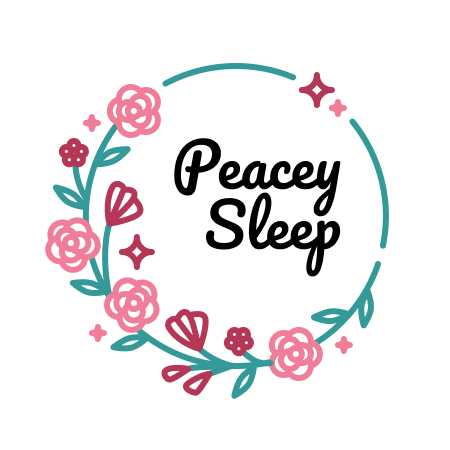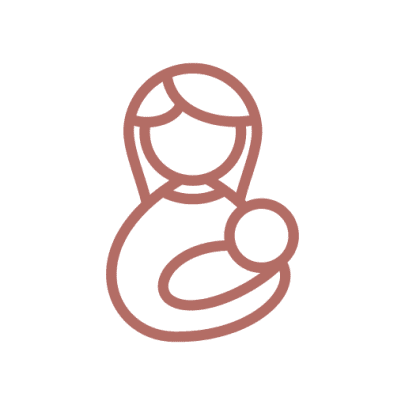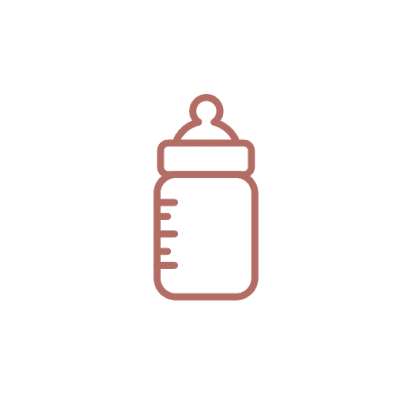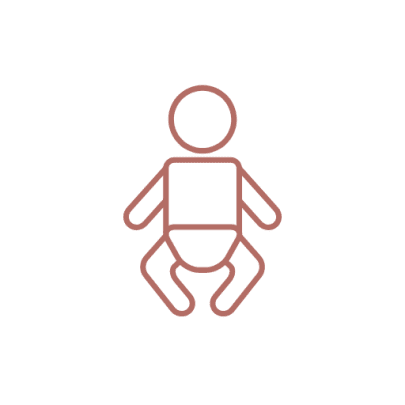Sleep cycles are a good thing: Peacey Sleep on the 4 month sleep regression
We’ve all heard about this milestone in our baby’s young lives and seen the memes or reels. We’ve just recovered from childbirth and hear a Mum-friend mention the four month sleep regression… “THE WHAT!? That doesn’t sound good,” we think to ourselves.
So what is it? Even though it is well known in internet and Mum circles as the 4 month Sleep Regression it is actually a progression or maturing of your baby’s sleep systems that occur around the 3 month mark but we often don’t see the negative impact of it until 4, 5, or even 6 months old.
This maturing of sleep cycles is a good thing! Newborns have more erratic and unpredictable sleep patterns due to their circadian rhythm (biological clock and hormones) not being fully developed yet. A mature sleep cycle essentially means your baby now has around 45 minute day sleep cycles and 2-4 hour night sleep cycles (2 hours being a partial sleep cycle, and 4 hours being a full sleep cycle). Once this develops into a more mature system it actually helps us live a more predictable routine day to day as your baby’s circadian rhythm now gives us ideal times throughout the day to aim for naps to happen in. These “biological sleep windows” are between 9-10am, 12-2pm, and 6-7pm and offering naps within these times are often more successful (that is, quicker to settle and longer naps) than offering naps outside of these times.
So what’s all the fuss about then? Why do we hear this time mentioned as “the dreaded 4 month sleep regression” or come across social media posts and blogs titled How to Survive the 4 Month Sleep Regression?
For some babies the new sleep cycles will trigger wake ups at the end of each and every sleep cycle. This means naps of 45 minutes during the day (or less if they’re overtired) and wake ups overnight typically every 2 or 4 hours until morning.
Babies struggling through this change may fuss more and be difficult to settle to sleep, leading to overtired and overstimulated babies who then wake even more, not less! As you can imagine, over a few weeks or months this can lead to one hot mess.
So how do we bring calm back into the home when the 4 month sleep progression strikes?
- An age appropriate routine or, at the very least, sticking to their awake windows to avoid over-tiredness (head to www.peaceysleep.co.nz to download the Peacey Sleep Free Routines.
- Encourage self-settling at the beginning of naps to promote longer sleeps.
- Get bubs sleep space set up so that it is supports restorative sleep (think: darkness, sleep associations like white noise and cute cuddlies, and a relaxing wind-down time)
- Work on resettling short naps and overnight wakes (you can do both of these at once, or work on one for a few days/a week then the other, depending on your readiness for change)
- Aim to space night feeds out by at least 4 hours to avoid more calories being consumed at night than at daytime. Work on resettling if night wakes are occurring between the 4 hourly feeds
- Go slow and get your support people involved if you’re feeling overwhelmed and exhausted.
Those of you with babies who have cat napped their whole lives or are assisted to sleep for all their naps (e.g. baby carrier, car trips, fed to sleep, rocked) are more likely to experience disrupted nights when the 4 month sleep regression hits as the over-tiredness hits them harder.
To save you from searching Google with phrases like “how can I get my baby to sleep” or “why won’t my baby sleep” and discovering a million contradicting answers, our friends at Peacey Sleep have created an affordable way for Mums to get the sleep support they need delivered straight to their inbox right when they need it. The Peacey Sleep Club is a community of Mums that value their sleep and wish to reduce the overwhelm, who are supported by me through all the milestones in their child’s first 4 years. Get on the waitlist to hear when the doors open again for this membership.
Until next time,
Laura Peacey
Infant and Child Sleep Consultant at Peacey Sleep









